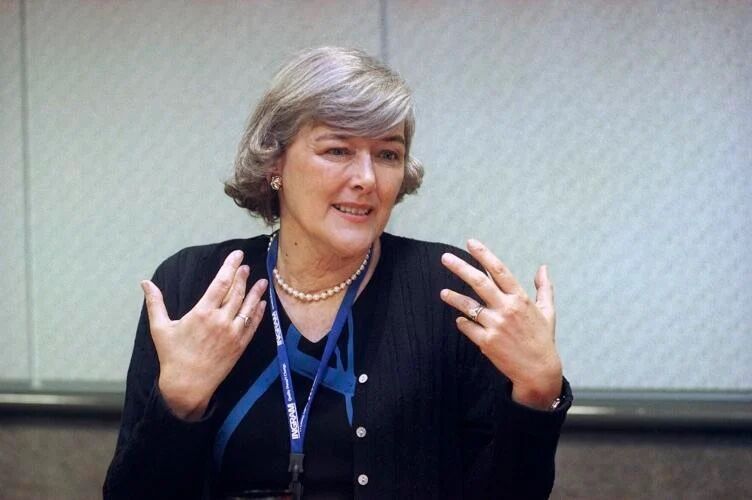Outgoing Colorado Senate President Steve Fenberg reflects on bipartisanship and lessons learned
When the current term-limited senators end their General Assembly careers at the beginning of 2025, there will be no Democrat in the 100-member General Assembly who has ever been in the minority and no Republican who has ever been in the majority.
Think about that.
The last time Republicans held the majority in the legislature was between the 2015 and 2018 sessions.
In 2017, Democratic Sens. Steve Fenberg, Rhonda Fields, and Rachel Zenzinger began their eight years of service in the Senate as members of the minority caucus. Zenzinger also served during the 2014 session as a member of the majority but lost in the 2014 election to Republican Laura Woods.
Fenberg recently spoke with reporters about the 2024 session, bipartisanship, the lessons he learned being in the minority, and how it shaped his service after the 2018 election when he was chosen as majority leader and, in 2022, as Senate president.
The 2024 session was a year marked by disparate groups that came together to figure out the best path forward for Colorado, Fenberg said. Did it mean that every big fight ended in a compromise? No, but the end of the session saw some of the most bipartisan work that’s taken place in the last several years on bills around the TABOR refund mechanism, property taxes, tax credits, and air quality, he explained.
Fenberg also commented on lawmakers’ habits of ramming through legislation at the end of the session. “I’ve always thought that you can ram things through, you can pass bills with one side if you have the votes, but the change or the policy is probably less durable than if you do it driven a little bit more by consensus,” he said.
“By bringing other viewpoints to the table, it doesn’t mean it’s going to be perfect,” he added. “It doesn’t mean everyone’s going to love it by any means, but I do think it is harder for a deal or for a policy achievement to get unraveled if more disparate folks have signed on and are part of crafting it,” he added.
He cited Republican Sen. Barbara Kirkmeyer of Weld County as an example. She played a significant role in the property tax deal (Senate Bill 233). She took ownership, Fenberg said, which was a key ingredient to the agreement being sustainable and an influence on future policy discussions.
The bipartisanship that marked some significant policy decisions was “absolutely real,” Fenberg added. In those discussions, everyone — Democrats, Republicans, business leaders, progressive advocacy groups — wrestled with the policy parameters. Everyone came to the table because whether they’ll say it out loud or not, the ballot measures (initiative #50, already on the ballot, and #108, in signature phase) are an “existential threat” to the state, state government, economy and the state’s budget.
He went again to Kirkmeyer, a member of the Joint Budget Committee who he said takes pride in shaping the state budget, calling her “not an average minority member.”
Fenberg believes the ballot measures motivated people to solve problems. And then there are members like Sen. Chris Hansen, D-Denver, the other sponsor of SB 233, who Fenberg said has deep opinions and beliefs about taxes and has worked on that issue for years and years. “I think he was very grateful to have a couple of dance partners on the other side of the aisle to help work through this stuff.”
He acknowledged that it has not been common to see major policy issues in the state Capitol under the banner of bipartisanship.
“You finally bring a big polarizing issue (like property taxes) to rest with the bipartisanship solution with the governor’s office,” with Colorado Counties Inc. and the other groups with such different interests. “That’s a big deal,” he said.
He then spoke about what it is like to be in the minority and what he learned from it.
“There’s three of us in the Senate Dems that have been in the minority. There will be zero next year,” Fenberg said, adding he was grateful for his two years in the minority.
At first, he hated it, he said. But looking back on it, “it was incredibly helpful and shaped who I am as a legislator because I knew what it was like to not have a voice. And I knew what it was like to have to have relationships with the other side in order to get anything done.”
He called it problematic to have an entire majority legislature that has never had the experience of being in the minority.
“Being in the minority gives you a little bit of an appreciation for making sure that you protect the minority’s voice, as much as you disagree with it,” he said.
For his first two years, it felt like his constituents didn’t have a voice because he didn’t have as much of a voice until he learned his way and started to figure out relationships.
“Every legislator represents voters. And whether you’re a Democrat or Republican or in the minority or the majority, you still have a voice. It’s still a democracy where just because you lose a vote doesn’t mean that you have no role to play in the legislature.”











